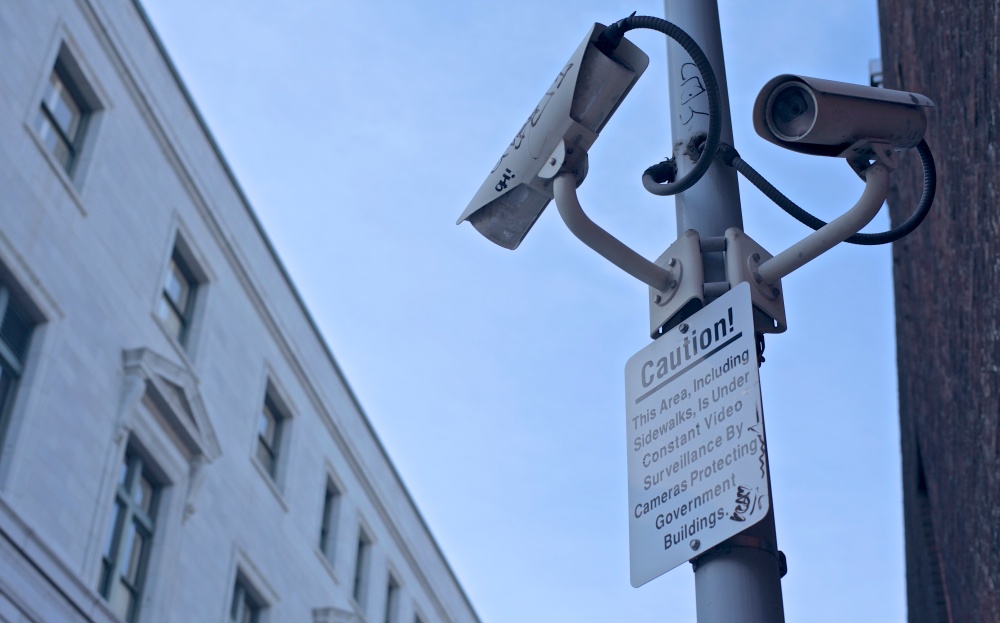“In extremis, it has been possible to read someone’s letter, to listen to someone’s call, to listen in on mobile communications. … The question remains: are we going to allow a means of communications where it simply is not possible to do that? My answer to that question is: no, we must not.”
—David Cameron, January 2015
“Nothing was your own except the few cubic centimeters inside your skull.”
—George Orwell, 1984
As I mentioned in a previous article on the Charlie Hebdo shootings, the most likely outcome of the event was that the West would embrace even more aggressive forms of surveillance and police power. Lo and behold, that’s exactly what has happened. As Kim Willsher reported in The Guardian just yesterday, the French government announced new powers that “include greater surveillance … hundreds more intelligence officers, gendarmes and police, and better equipment for security services.” Yes, because a lack of surveillance and poorly-armed police were what led to the shootings.
Give me a fucking break.
As The New York Times reported back in 2013, the French legislature previously approved laws that would “markedly expand electronic surveillance of French residents and businesses.” That same article says the French law from 2013 “provides for no judicial oversight and allows electronic surveillance for a broad range of purposes[.]” Not to be outdone, the British government also proposed its own new “anti-terror” laws in the wake of the shootings.
But here’s the rub: as everyone now knows, the Charlie Hebdo suspects were already on the radar of French authorities. So, if massive surveillance did not work last time around, what assurances do we have it’ll work this time? None, of course. Government officials merely have to shout “terrorism!” or raise their Crayola-inspired terror chart to orange or something, and everybody cowers back in fear and says “Yes, government, take more of our civil liberties away & save us from these barbarians! We don’t need the right to privacy; take it away from us & use your infinite wisdom to Keep Us Safe!”
This is both sad and unsettling. It’s sad because it takes so little effort on the government’s part to scare us into giving away more and more of our precious civil liberties. (I can’t be bothered to look up the numbers now, but presumably your odds of being killed by a terrorist are infinitely lower than your odds of being killed in a car crash, by a toppling vending machine, by falling down the stairs, by cancer, etc.). And it’s unsettling because, as I wrote about before, I don’t know where we go from here.
Actually, scratch that—I do know where we’re going. And where is that, you ask? Exactly where David Cameron suggested: to a place where there are no means of communication that can escape government surveillance. I’m sorry, but what kind of world is that? And how is that different from Orwell’s world of 1984, in which the only thing that was safe from Big Brother’s intrusion was the pink matter that makes up your brain? (Surely the NSA & GCHQ are hard at work finding ways to solve that issue, for who knows what possible ThoughtCrimes are swirling through your head this very instant!) The only thing more horrifying than the world envisaged by Cameron’s quote above is that no one stood up and opposed his bullshit. Are we all just going to stand by idly as our civil liberties are chipped away, day after day, year after year? If so, I’m inclined to believe perhaps we never deserved those rights to begin with. As Ben Franklin observed: “Those who would give up essential Liberty, to purchase a little temporary Safety, deserve neither Liberty nor Safety.”
Maybe Franklin’s right—maybe we don’t deserve the civil liberties we’ve been lucky to have if we’re collectively willing to throw them overboard the second a government official tells us we have to or else. Shit, I don’t know. What I do know, however, is that things don’t look very good for those of us who cherish the right to privacy and the right to be free from government surveillance.
Which brings me to another funny thing about surveillance: ever notice how it’s always a one-way street? The government wants the ability to track and monitor everything we do, but there’s no corresponding method for the public to listen to what government officials say behind closed doors, when the cameras are off and when we aren’t there to keep them in check. Who knows what goes on then? How do we know they aren’t up to no good? We don’t—we just have to trust them. Trust them, like when they lied about WMDs in Iraq. Trust them, like when they lied about the Gulf of Tonkin incident. Trust them, like when they lied about torture’s efficacy. Trust them, like when they lied about the NSA collecting data on Americans. Trust them, after they have lied time and time again to our faces.
Come on, people. Are we really that stupid? Have we learned nothing from our history and from the present? Do we honestly believe the only solution here is more surveillance and better-armed police? Ask yourself: where does that road end? I’m not sure I know the answers to those questions myself, but I do know those are (some of) the ones that we should be asking.
Or maybe not—maybe I’m just stupid and haven’t figured out that David Cameron, Barack Obama, and the rest of the military-industrial complex know what’s best and I should just shut up and sit down. And oddly enough, that in and of itself reminds me of yet another quote from 1984: “Whatever the Party holds to be truth is truth. It is impossible to see reality except by looking through the eyes of the Party. That is the fact that you have got to relearn, Winston.”
—Winston A.




One comment
Comments are closed.